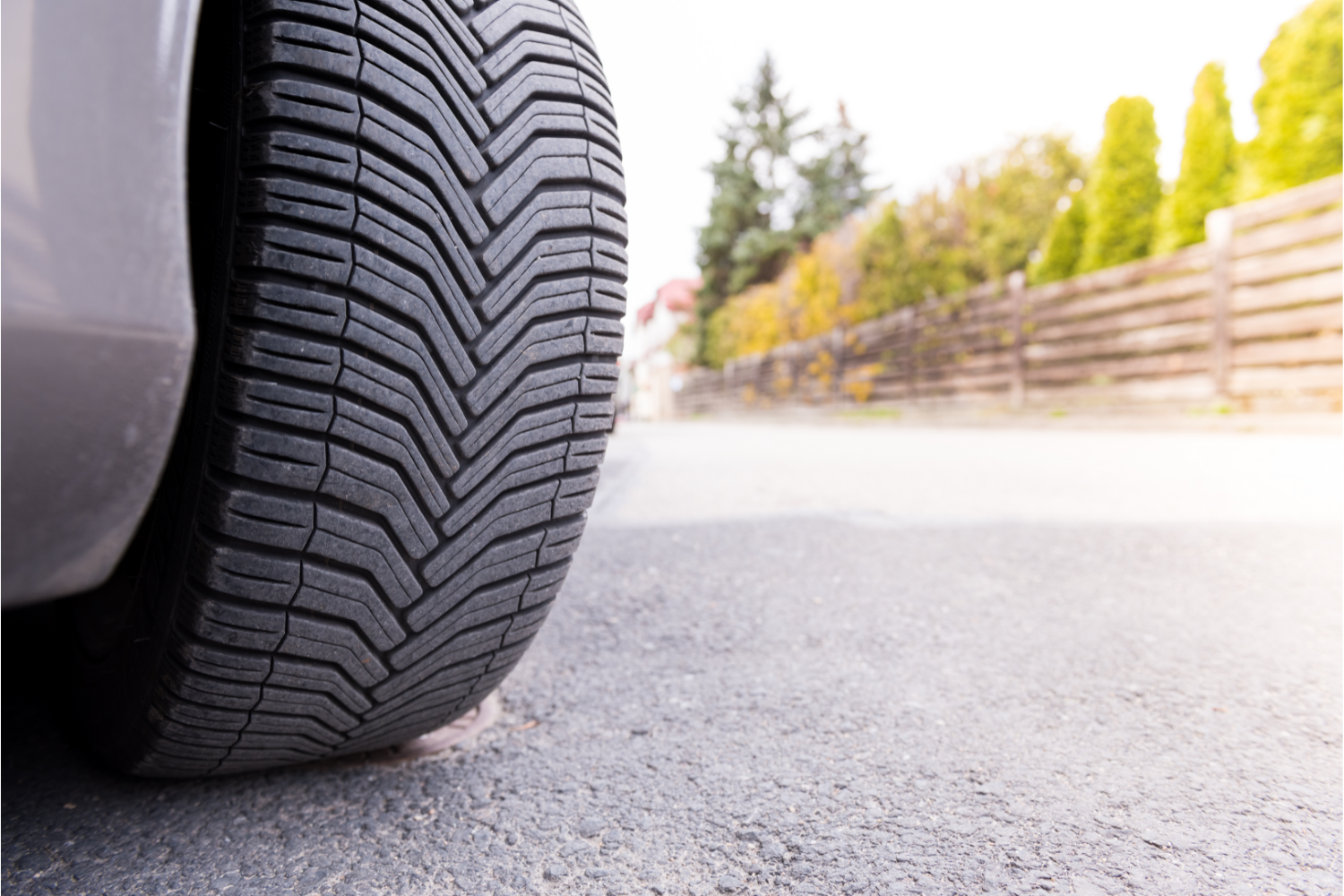
To improve vehicle performance and ensure safety while driving in challenging weather conditions you need to choose the right type of tire. Since tires are the only point of contact between the road and the vehicle, they can improve certain performance parameters such as traction, grip, handling, and braking.
Finding and choosing the right tires depends on the weather or climate conditions of that area. Diverse weather conditions, such as heavy rain, snow, and hot/dry roads, might make drivers wonder if they should choose the all-season or all-weather tires. Wondering what is the difference between the all-weather and all-season tires? Worry no more! Our detailed guide will compare both in terms of durability and performance. Without further ado, let’s dive in.
All-weather tires are formulated with a specialized rubber compound which shows similar properties both in summers and winters. This means these tires can withstand even harsh weather conditions such as hot dry roads to heavy snow.
Not only does this type fill the gap between the winter tires and all-season tires with their benefits, but is versatile enough to be utilized in the spring, summer and winter seasons.
All-season tires are formulated with a standard rubber compound which remains flexible in high temperatures but becomes stiff as soon as the temperature starts dropping.
All-season tires are not ideal for the winter season because the rubber compound gets stiff when the temperature drops below 7°C or 44.6 Fahrenheit. Thus, all-season tires are mainly considered best for moderate climates and are not usually recommended for harsh winter conditions.
Before opting between the all-season or all-weather tires, it’s important to comprehend the difference between the two! Both these types of tires can be used all year but under certain weather conditions. Let’s unfold!
What sets the all-season and all-weather tires apart is the tread pattern. All-season tires have a versatile tread pattern with narrow grooves. However, all-weather tires are equipped with a broad tread pattern with deep grooves. Therefore, all-season tires are better in comfy rides while all-weather tires are preferred for a better grip.
If you’re driving in a warmer climate, all-season tires would do best! On the contrary, construction of all-weather tires makes them suitable for cold climates where there is heavy snow on the roads for most part of the year.
Rubber compounds utilized in the production of tires play a major role in durability and lifespan. An all-weather tire tends to degrade faster due to a softer rubber compound, while an all-season tire is made up of stiff rubber, offering extra durability.
Choosing between all-season and all-weather tires requires considering multiple factors such as driving patterns, climate and weather conditions, budget, vehicle compatibility, and more. Let’s explore when you should choose the all-season and all-weather tires to ensure stability and boost the performance of your vehicle.
We have also compiled all related information such as rubber composition, performance in severe weather conditions such as rain, ice, or snow, temperature flexibility, and more in a detailed comparison table of all-season vs all-weather tires!
| Features | All-Season Tires | All-Weather Tires |
| Tread Pattern | Small grooves | Deep grooves |
| Manufacturing Rubber | Standard rubber, which gets hardened in winter | Soft & Flexible rubber |
| Performance in Snow | Limited traction and grip in snow and ice | Good grip in snow and ice |
| Temperature Effect | Best for mild temperatures (above 7°C or 44.6 Fahrenheit) , rubber gets hard in low temperatures | Best for both warm and cold conditions |
| Best For | Mild climates and light snow | Year-round usability and heavy snow |
Multiple factors contribute to your decision to choose between the all-season and all-weather tires for your vehicle, such as the climate conditions you’re living in, driving patterns, and budget. However, both tires perform equally well and serve the purpose effectively. All-season tires with an M+S (mud and snow) rating are suitable for mild climates with light snow, while all-weather tires offer year-round usability and good traction in heavy snow. For those who need quiet off-road tires, it’s important to consider options that balance off-road performance with low noise levels. In case you’ve any more questions, feel free to ask!